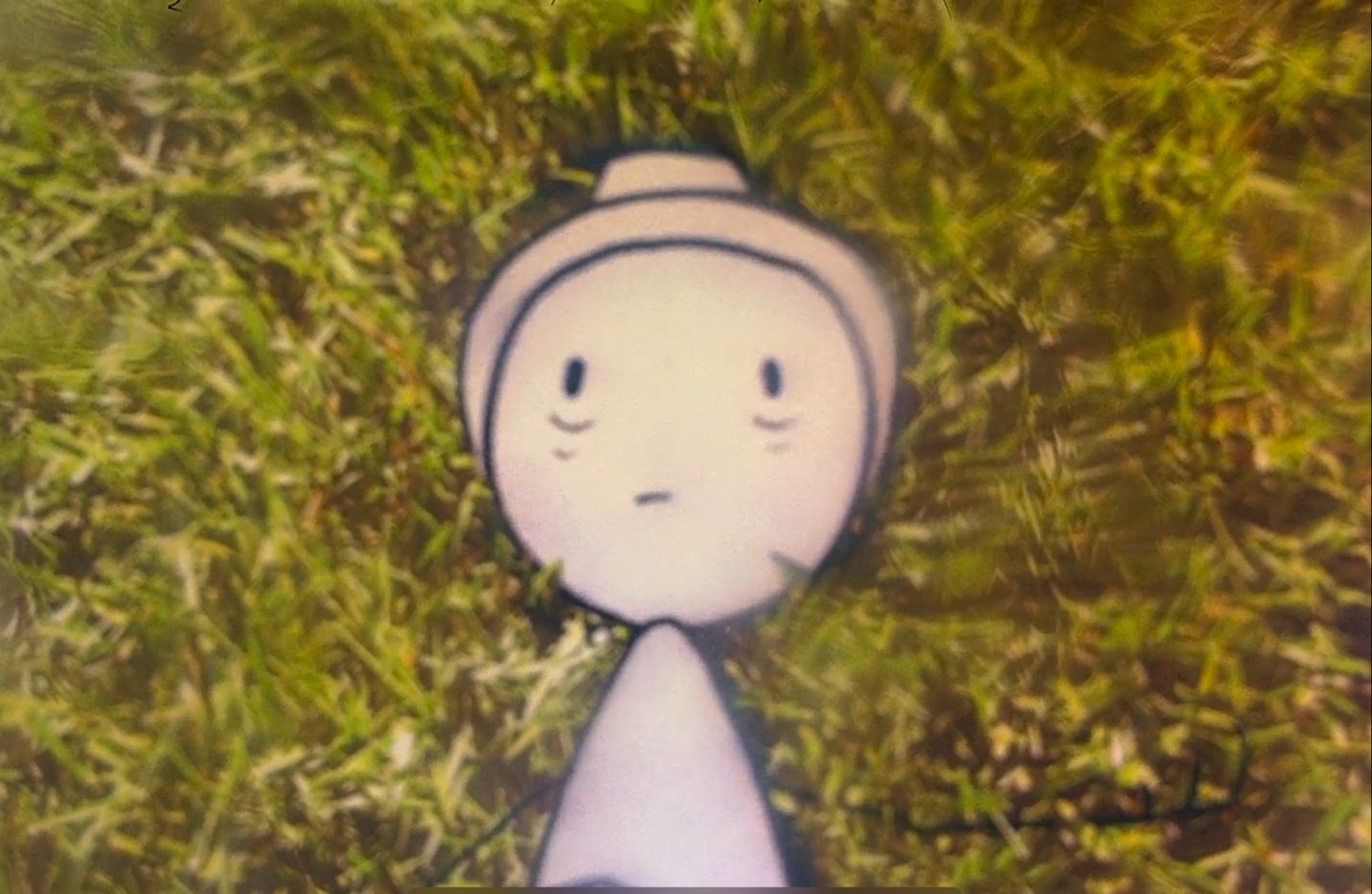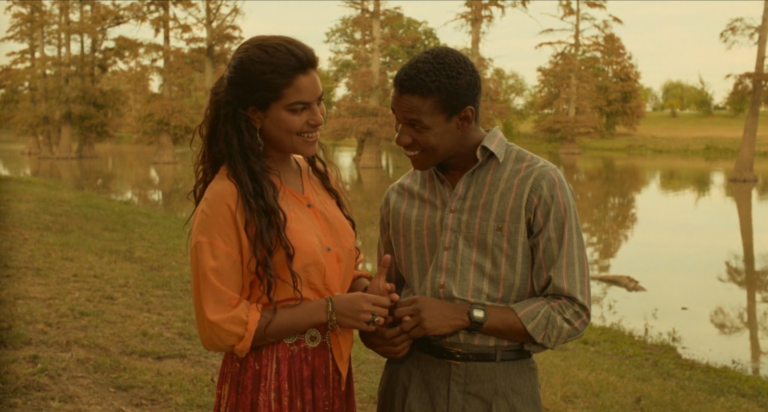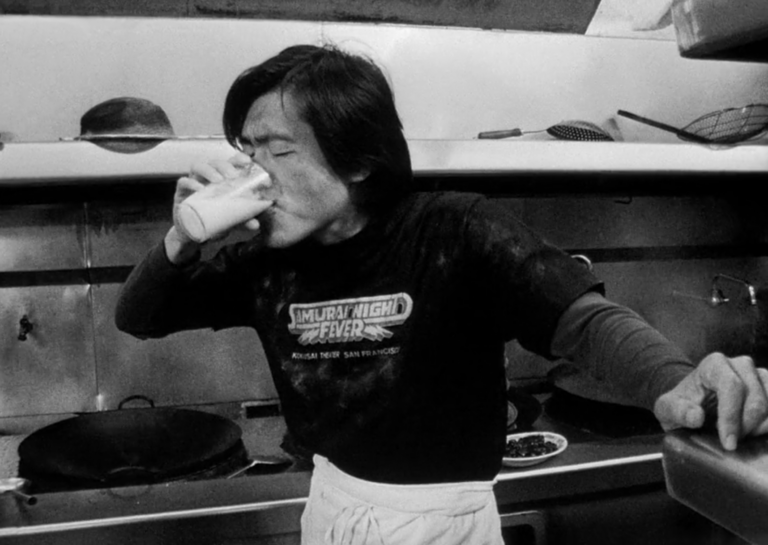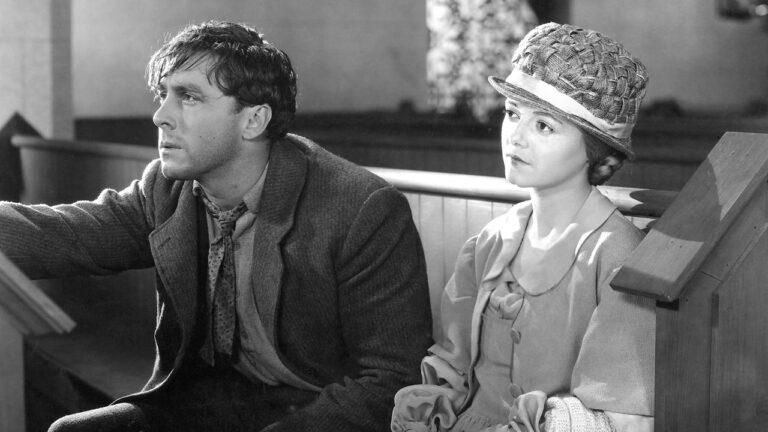It’s such a beautiful day, isn’t it? Warm sepia hues bathing my spotless optics, the rivulets of water sliding down from the downpour just past, the susurrus of trees being patted dry by the wind. One could hardly tell that I’ve just watched a film that talks – amongst many things – about an elderly woman whose remedial pastime is to scrub preserved cat heads against her own. Oddly, as the blighting reality of the film sent me slowly into a lurch, stronger grew my recognition of the hues. When Hertzfeldt finally unlatched the cage doors, liberation gained a new meaning. This liberation ended a witch-hunt – and I don’t say this lightly – whose only formidable opponent is Death. Yes, the turn to the cosmos and finally to a blinding whiteness is the closest one can get without actually segueing from the fateful final act. In this measly hour-long exposition of stick-like characters, Hertzfeldt takes a fractal of our chattering mind and blows it up to convulsing proportions – a state of existence that is unfortunately suffered by a select few. The result is everything I’d want from cinema; to rupture the triteness of established perspectives at every possible turn.
Though Hertzfeldt doesn’t make it explicit, Bill suffers from dementia. He does hint at it, as when Bill is distractedly dealing with his mother’s box of possessions and stumbles upon her medical record. Through a train of even wackier genes, he’s also suffering physical degeneration. Only for our lasting enlightenment does Hertzfeldt show the attached physician note that advocates against pregnancy for Bill’s mother. But, through all of this, the focus of the narrative is never focused on the cause. He doesn’t wish to scapegoat genealogy; in fact, the entire narrative exists to arrive at a universal curtain-closer without any pre-determinants. We’re all handicapped in one way or another. The question is – is it possible, even with such tumultuous disconcert, to appreciate the ever-rising and falling forces of life that engulf us?
For Hertzfeldt, the answer to that question is a resounding yes. But for his sentiments to transfer onto us, I’d like to focus on his treatment of that tumultuous disconcert. In my recent memory, the only other film to have left a lasting impact on my perception of dementia is Zeller’s The Father. In its construction, it’s brilliant in showing the world around Anthony crumbling as a consequence of his deteriorating condition. For Anthony himself, that world is his perception but for us, it includes him, and everyone tethered to him. We observe, through his mental bluster, the spillover effects it has on Anne. When the high tide of conundrum recedes, we also see his soft gratitude towards Anne. Unconventionally sublime in its splicing of the thread of time, it achieves the dual effect of empathy for the hub and its spokes. Running contrary to this, Hertzfeldt’s work is a violent insertion of our consciousness into that of Bill. No live-action film can take one closer to the rapid patter of the same mind. We watch thoughts bleed profusely against each other as noises bleat in adamantine unison. It’s an uncompromising representation of delirium – as when Bill rings up his ex-girlfriend to tell her about the manatee.
In a film that’s rapidly losing its own narrative thread, how do you present it to an audience? Hertzfeldt supplants the passage of time within the narrative by merely creating chapters of memory. “All of eternity,” he interjects, “is actually taking place at once.” From the start of the film to the end, we see events transpire, but without this chapterisation, it would be a harder task to progressively see Bill’s thoughts towards death. The scene that struck me the most was when Bill observes an elderly man stumble while making a call to his daughter at the gas station. Through the narration, we understand that this is after he is made aware of the fatal prognosis. Yet, the scene could have taken place years ago, now merely a passing recollection as Bill wanders from motel to motel. Besides the obvious need for us to have a pursuable line of thought, the truth of Hertzfeldt’s adage still stands. How many times do we sternly glance at something, imputing it with the meaning of an event lost in the past, until the present and the past bleed together to become a moment that the future will then see as one?
Funnily, this brings me to the afterlife sequence that Hertzfeldt frantically ushers us into to avoid focusing on the physical death of Bill. We now see Bill as a metaphysical embodiment of time itself. This Bill exists to learn all languages, know every land, and father hundreds of thousands of children whose offspring he will eventually forget. He knows no end until he collapses from within himself. This metaphorical sting of a gradual loss of memory is painful but profound – aren’t we all traversing the same waning path that Bill and Time traverse, albeit at a much more tolerable pace?
It’s Such A Beautiful Day is not an easy watch. It loops thoughts with the speed of a car blasting across the interstate with latched doors. But it is precisely for this addling experience that I’d watch it again. Cinema can be challenging in more ways than one, and Hertzfeldt’s cacophonic master-stroke ticks all the right boxes. Its unpleasantness doesn’t derive from the presentation – but rather from the self-effacing, yet forceful display of everyday truths. Bill’s observations are universal, aren’t they? The ignored exchanges with the cashier, the meta-thoughts on absurd advertising, the ugly skimp within us that rears his head while paying no heed to propriety? All of us have lived through the grotesque paces of modern life and have asked ourselves the question that Bill does to himself – is this truly my life? When we realize that it is, then perhaps we can finally hurl a spanner into the works that obviate our appreciation for our inexplicably joyous presence on Earth.
I truly enjoyed this for one single reason. It’s one thing to say – “Stop and observe the beauty of life.” But it’s a herculean task to composite images and solder sounds to flood our sensory receptors with no respite, to prompt a profound sympathy for those who suffer such a state, and in doing both, inspire a necessary fear that we aren’t cognizant that every droplet of time is being pelleted against our cheeks only for us to wipe it away? Dear Hertzfeldt, I’m going to stop here and hope that your film gains a fraction of the screens that the popcorn-crunching affairs of our decade get. In the best sense of the word, you truly deserve it.





